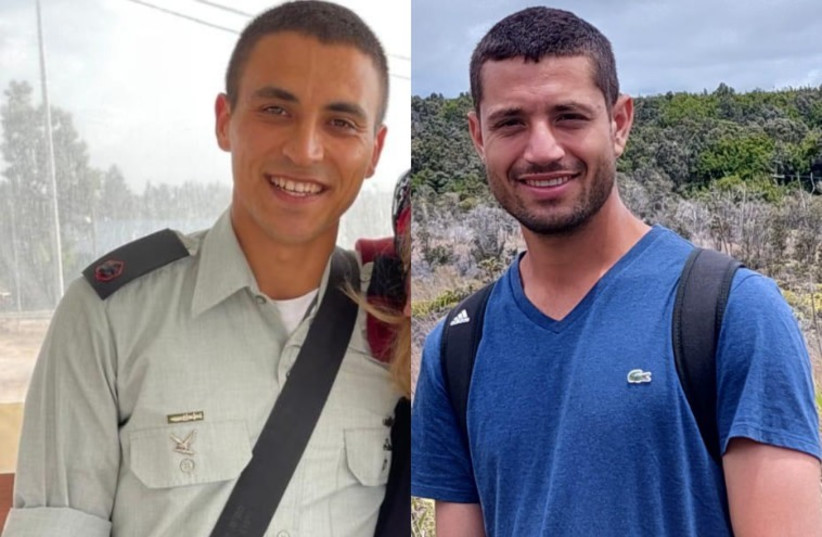Following the investigation into the friendly fire deaths of two IDF officers in the elite Egoz Commando Unit, the commander of the unit will not be removed from his position but junior officers will be dismissed.
Though the commander of the unit, Lt.-Col. “E,” offered to resign following the tragedy, Chief of Staff Lt.-Gen. Aviv Kohavi refused to accept it. Instead, he will finish his tenure and will not be promoted for the next two years instead of commanding over the Alexandroni Brigade.
The deputy battalion commander, Maj. “Y,” has been removed from his position and will be barred from a command role for two years. Lt. “N” will be removed from his position and will never serve in a command role in a combat unit. The soldier who lost the night-vision goggles will be dismissed from his position.
“This is a very difficult and serious incident that could and should have been prevented,” said Kohavi, who added that it occurred “due to professional deficiencies” and “a serious mistake in discretion.”
Maj. Ofek Aharon and Maj. Itamar Elharar were killed in January after another officer, Lt. N, misidentified them while they were all searching for stolen equipment at the Nabi Musa training base in the Jordan Valley.
“It could have been prevented,” said Maj.-Gen. (res.) Noam Tibon, who led the investigation into the incident.
The inquiry found that there is a culture in the unit of not reporting or investigating incidents. While E, the battalion commander, was informed of the thefts that had occurred, he had not been informed of the patrols carried out by the officers.
The investigation revealed that there was a series of serious mishaps that occurred during the training period, including that the unit commander was not present because he was preparing for operational activity in the Northern Command. His deputy was therefore entrusted with carrying out the training.

The deputy, Elharar and another commander also left the base for their homes in the center of the country – contrary to procedure that required them to stay for the length of the training.
According to Tibon, the unit had a culture of failing to report and investigate incidents as well as severe disciplinary issues that led to the friendly fire incident, which the unit’s chain of command could have prevented.
The event was particularly awful because it involved officers who were breaking rules and violating norms that they would never accept their soldiers breaking, Tibon said.
The investigation found that both Aharon and Elharar did not spend most of the week at the Nabi Musa base, but were deployed elsewhere on operational missions and training.
When they arrived at the base that evening, they were told of several thefts that had occurred the previous day after another soldier left his equipment, including powerful night-vision goggles and bullets, on the firing range.
Lt. N had left a short time earlier to look for the stolen equipment after he asked at least one other officer in the unit if he was interested in joining him on the search. That officer said no.
He then told officers that he was going out alone with a magazine and a bullet already in the barrel of his weapon.
Elharar and Ofek then went out to look with another soldier – without helmets, vests or radios – to search for the equipment.
While officers on the base knew about the two patrols, the patrols did not know about each other.
The military said the team with Aharon and Elharar identified a suspicious figure 200 meters (approx 650 feet) away on a mound, flanked him until they were just several meters away, and yelled at him in Arabic.
Feeling that his life was in immediate danger, N fired six bullets toward them from less than 15 meters away. While Elharar was able to fire four bullets, none hit N. Both he and Aharon were hit by three bullets each to the chest.
The firefight lasted less than 10 seconds before the third member of Elharar and Aharon’s team shouted, “IDF, stop!”
